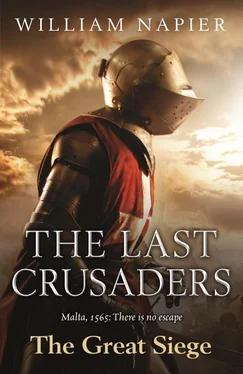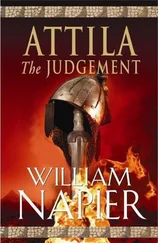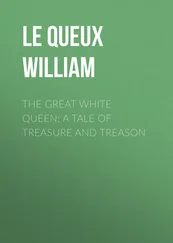William Napier - The Great Siege
Здесь есть возможность читать онлайн «William Napier - The Great Siege» весь текст электронной книги совершенно бесплатно (целиком полную версию без сокращений). В некоторых случаях можно слушать аудио, скачать через торрент в формате fb2 и присутствует краткое содержание. Жанр: Исторические приключения, на английском языке. Описание произведения, (предисловие) а так же отзывы посетителей доступны на портале библиотеки ЛибКат.
- Название:The Great Siege
- Автор:
- Жанр:
- Год:неизвестен
- ISBN:нет данных
- Рейтинг книги:5 / 5. Голосов: 1
-
Избранное:Добавить в избранное
- Отзывы:
-
Ваша оценка:
- 100
- 1
- 2
- 3
- 4
- 5
The Great Siege: краткое содержание, описание и аннотация
Предлагаем к чтению аннотацию, описание, краткое содержание или предисловие (зависит от того, что написал сам автор книги «The Great Siege»). Если вы не нашли необходимую информацию о книге — напишите в комментариях, мы постараемся отыскать её.
The Great Siege — читать онлайн бесплатно полную книгу (весь текст) целиком
Ниже представлен текст книги, разбитый по страницам. Система сохранения места последней прочитанной страницы, позволяет с удобством читать онлайн бесплатно книгу «The Great Siege», без необходимости каждый раз заново искать на чём Вы остановились. Поставьте закладку, и сможете в любой момент перейти на страницу, на которой закончили чтение.
Интервал:
Закладка:
William Napier
The Last Crusaders: The Great Siege
It was on this occasion that Catherine de Medici asked, ‘Was it really the greatest siege? Greater even than Rhodes?’
She was answered by Knight Commander de la Roche, of the French Langue: ‘Yes, Madam, greater even than Rhodes. It was the greatest siege in history.’
— Jurien de la GravièreMalta of gold, Malta of silver, Malta of most precious metal,
We will never take you, not if you were protected by no more than the skin of an onion!
No, for I am She who drowned the galleys of the Turk,
Who destroyed all the heroes of Constantinople and Galata …
— Sixteenth century balladPROLOGUE
Rhodes: Christmas Eve, 24th December, 1522
One last arquebus shot cracked out from the battered walls of Rhodes, followed by the angry shout of a Knight Commander. Then there was silence.
Spread out beyond the city lay the vast army of the Ottomans. The horses of the Sipahi cavalrymen waited in line, snorting and tossing their plumes. The Janizaries rested their hands on their sword hilts, gazing steadfastly out across the wreckage of the plain. The fanatical Bektaşis stood crowded close behind, in the eyes of every one of them a grievous disappointment that the battle was done and they were still living, while their slain brothers were even now with the Prophet in Paradise.
Seated on a magnificent white stallion of Cappadocia, shaded from the mild December sun by an immense, tasselled palanquin of yellow satin, sat the Caliph of the Islamic World. Suleiman Kanuni : The Law Giver. The young Sultan moved not a muscle, never blinked. He waited for the inevitable surrender of the Christians with all the implacable patience of the Drawn Sword of Islam. For it was written that the whole world should finally bow to the religion of the Prophet, and even he, Suleiman, son of Selim, was but a slave of Allah and his purposes.
The fall of Rhodes to his numberless armies was just the beginning.
At last the splintered gates in the Eastern Wall of the city creaked open, and a slow procession emerged.
They raised banners of the Virgin and of the warrior archangel St Michael for protection. First of all came the men, women and children of the city, for whose sake the Knights had surrendered. Barefoot, dusty and half-starved, four thousand of these wretched islanders made their way down to the harbour to beg for a boat to take them … who knew where? A new life, without possessions, without hope. But still alive.
The Turks watched them go. These wretches would have earned a handsome sum indeed, four thousand souls, in the slave markets of Istanbul, even half-starved as they were. Especially the younger girls and boys. But the Sultan had shown himself as merciful as ever, and his soldiers’ only booty would be what they could plunder from an almost unpeopled city.
Not one among the departing had not lost a father, brother or son in the bitter siege.
A young widow, in black from head to toe, stumbled and fell by the roadside. Her small son moved to help her, a child of no more than four or five years, face already scarred and wizened by hunger and disease. A Turk stepped forward to help her. She glared up at him ferociously, and pulling herself to her feet with the fragile aid of her child, she hissed at the Turk,
‘Keep back from me, demon-worshipper.’
The Turk stood back and let her walk on.
After the long and mournful procession of islanders came the knights, some limping, some carrying their brethren on stretchers and litters down to the harbour, and their great carrack, the St Mary , riding at anchor in already choppy waters. Others carried the records of the Order, or its most holy possessions, the right arm of John the Baptist in a gold casket, and the Icon of the Virgin of Phileremos, painted by St Luke himself.
At their head walked the Grand Master, tall, lean, white-bearded, some sixty years of age. Philippe Villiers de l’Isle Adam, son of the highest French nobility, silent and grave in defeat.
He stopped before the Sultan and bowed his head, in acknowledgement of the Sultan’s mercy, and as one fighting man to another.
Close by the Grand Master stood another, much younger Knight of St John. Like the rest he wore a long black gown sewn with a white cross, the habit of peacetime. Yet his eyes now fixed on the Sultan with an implacable spirit of opposition.
No man looked directly at the Sultan, least of all an infidel. A Janizary stepped forward instantly, vine stick grasped tight in his right hand, ready to strike.
‘Lower your eyes, Christian!’
Outrageously this young knight continued to stare full in the face of the Sultan. At last Suleiman himself turned his head slightly and returned his gaze. The Knights of St John had been defeated, their fortress home destroyed. And yet in this one’s eyes, there burned an emnity as deep as the Pontic Sea.
A brother knight, of the English Langue, limping badly from a wound to his left thigh, a rust-red bandage bound tightly about it, clapped his hand hard on the shoulder of the first. Yet still the young knight stood staring, like a hound fixed on its prey.
Then a commanding voice rang out from the head of the column.
‘La Valette! Walk on, sir!’
It was the Grand Master himself, looking back angrily.
Chastity, poverty, and — hardest of all — obedience. For the knights were as much monks as soldiers. The young Frenchman dropped his gaze from the Sultan, Lord of the Unbelievers, as the Master of his ancient order had commanded, and moved slowly on. His English brother knight fell in behind him, a faint smile on his lips.
‘We will fight again, Fra Jean,’ he murmured. ‘Do not doubt it.’
The knight called La Valette said nothing. Eyes staring ahead at emptiness, jaws set like iron.
The knights could have fought on at Rhodes.
Many times before, over five long centuries, they had fought the Armies of Islam to a standstill, and to the death. In 1291, at Acre in the great Crusades, they had fought and died almost to the last man. When the armies of Al-Ashraf Khalil finally broke into the city and began the steady slaughter, the last of the Palestine Hospitallers took their stand in a single dungeon. Just seven brothers were left, each still swinging his sword though mortally wounded, drenched in his own blood, white-faced. All died there. Seven knights, fighting in a tight circle, back to back. And perhaps another twenty or thirty jihadis, strewn around them.
These Knights Hospitaller, these Knights of St John — they were the Bektaşis of Satan.
They were the mad dogs of Christendom.
But at Rhodes, it was not only their own lives they would sacrifice, but the islanders’ too. Fishermen, farmers, merchants and priests, wives and children, infants in arms. What right did the knights have to condemn the whole island to death? None. Not when Suleiman had promised them safe passage to leave, and merciful treatment of any islanders remaining.
Besides, Villiers knew that the fighting was done.
For six long, desperate months, the knights and the people had known nothing but the deafening roar of cannon, the crack of handguns, the hiss of seething, bubbling pitch on castle walls, the ring of steel, the hollow clubbing sound of shield on skull, the stench of blood and burning oil and ordure, the haw of mules, the squeal of pigs, the half-crazed barking of dogs.
Finally there were so few men left to fight. There was no more gunpowder, not a sword left unblunted or a shield undented, and there was the Sultan of the Ottomans offering safe passage.
Читать дальшеИнтервал:
Закладка:
Похожие книги на «The Great Siege»
Представляем Вашему вниманию похожие книги на «The Great Siege» списком для выбора. Мы отобрали схожую по названию и смыслу литературу в надежде предоставить читателям больше вариантов отыскать новые, интересные, ещё непрочитанные произведения.
Обсуждение, отзывы о книге «The Great Siege» и просто собственные мнения читателей. Оставьте ваши комментарии, напишите, что Вы думаете о произведении, его смысле или главных героях. Укажите что конкретно понравилось, а что нет, и почему Вы так считаете.












